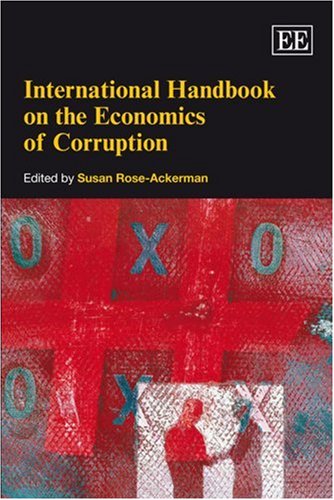

Most ebook files are in PDF format, so you can easily read them using various software such as Foxit Reader or directly on the Google Chrome browser.
Some ebook files are released by publishers in other formats such as .awz, .mobi, .epub, .fb2, etc. You may need to install specific software to read these formats on mobile/PC, such as Calibre.
Please read the tutorial at this link: https://ebookbell.com/faq
We offer FREE conversion to the popular formats you request; however, this may take some time. Therefore, right after payment, please email us, and we will try to provide the service as quickly as possible.
For some exceptional file formats or broken links (if any), please refrain from opening any disputes. Instead, email us first, and we will try to assist within a maximum of 6 hours.
EbookBell Team

5.0
20 reviewsEconomic research on corruption aims both to isolate the economic effects of quid pro quo deals between agents and third parties, and to suggest how legal and institutional reforms might curb harms and enhance benefits. In this comprehensive Handbook, top scholars in the field provide specially commissioned essays, both theoretical and empirical, exploring both types of research.
The Handbook begins with an introductory essay by the editor, followed by two chapters written by leading exponents of cross-country research. However, the focus of the Handbook is on research at the micro level, where policy can be made and evaluated. These microeconomic studies fall into several overlapping categories. The first group includes studies that link corrupt incentives to institutional structures, particularly the organization of the state. The second draws implications from surveys of households or businesses and from controlled experiments. The third concentrates on particular sectors such as education, tax administration, public works, customs services, and pharmaceuticals. Finally, two chapters assess corruption in the transition away from socialism in Europe and Asia.